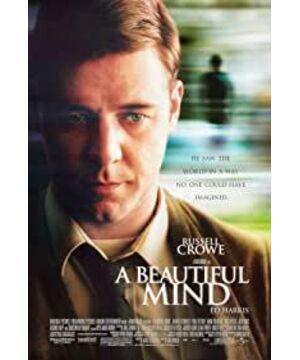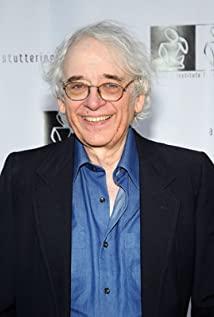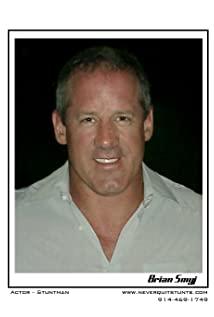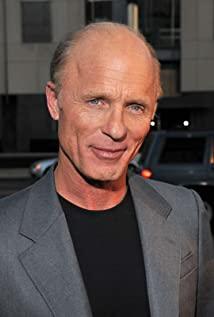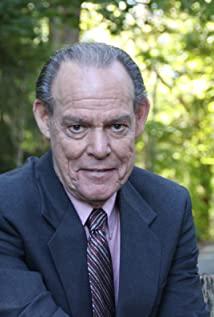Abstract: The movie "Beautiful Mind" is a psychological blockbuster familiar to domestic audiences. The leading actor Nas is a typical schizophrenic patient. This article analyzes the psychology of Nass from the performance of Nass in the movie, and reveals the psychological causes of Nass suffering from schizophrenia from the perspective of analytical psychology, so as to help the audience better understand the movie and the mentally ill.
Keywords: Nass emotional unconscious archetype
Even now, when people talk about schizophrenia, the usual response is still fear, inconceivability, rejection, and discrimination. It is difficult for normal people living in real society and ordinary life Understand those weird behaviors and behaviors of mental patients. However, in our society, there are more and more mental patients. They not only need the attention of doctors and psychologists, but also the recognition and support of the public. And the recent movie "Beautiful Mind" undoubtedly succeeded in achieving this goal. ?
"A Beautiful Mind" screenwriter Akiva Goldzman made meticulous arrangements for the plot, and the performance of Russell Crowe, the actor of the actor Nas, was also superb. There is also the beautiful campus of Princeton in the golden autumn, calm and ethereal music, and cascading shots, all of which make "Beautiful Mind" an exquisite and beautiful movie, and won four Oscar awards in one fell swoop. However, what is really impressive is the wonderful thoughts and legendary experiences of Nas in the movie, and the touching love brought by Alyssa that really touches people's hearts is the humanity that Nas has experienced through a lifetime of legends. beauty. ?
Akiwa Goldzman's parents are both well-known psychologists in New York, and they have a good understanding of mental patients. In this sense, Goldzman is the first psychoanalyst of the Nas prototype. Both movies and psychoanalysis are trying to explain a story, trying to penetrate a person's heart. Goldzman’s psychoanalysis makes Nas’s soul truly and deeply reproduced on the screen, and we hope to help ourselves and the audience understand the movie better and understand Nass better through some psychological analysis points of view. Heart.
1. Personality analysis: the conflict between thinking and emotion
(1) the imbalance between thinking and emotion
"Beautiful Mind" shows a genius mind. The initial impression Nas gave the audience was that at the welcome reception at Princeton University, in Nas's eyes, the sunlight floated in the air through the glass and the image of the lemon, and then coincided with the tie pattern of a student next to him. Nas smiled slightly and said to the classmate: Do you know? I can explain how ugly your tie is from a mathematical point of view. This is Nas, the genius of West Virginia. In his mind, mathematics seems to explain everything. He observes everything in life and uses mathematical formulas and mathematical reasoning to express everything in life. Such as rugby matches, the activity cycle of pigeons, the performance of a woman chasing a man who snatched her wallet, etc. His famous game theory was inspired by his observation of the social activities of men and women in bars. Through the window filled with formulas, you can see Nas’s thoughtful face. The world in his eyes is a rational world full of numbers, logic and reasoning, and he is tirelessly pursuing it in the rational world he understands.
Contrary to his pursuit in the mathematical world, he has little enthusiasm for real life. The beginning of the film also showed Nas's personality through some fragments. He is withdrawn by nature, does not speak much, refuses to socialize, and is incompatible with the lives of other classmates. Undoubtedly, the development of Nas's thoughts and emotions is very uneven.
When talking about mental types, Jung, the master of psychoanalysis, regards thinking, emotion, feeling, and intuition as the four poles of the functional cross diagram, and the center is self. Among them, thinking and emotion are relative, feeling and intuition are relative. The self may be biased in these two relative dimensions. People who like thinking have their own willpower oriented toward the thinking side, and emotions can only be placed at the lower end, which is a secondary function. When the two are relatively balanced, the self can still better understand and control emotion, and the emotion at this time is a kind of rational emotion. But the more people who are accustomed to thinking, the more likely they are to be rejected. When thoughts occupy all of consciousness, emotions can only function in the unconscious. Emotions cannot be understood and controlled by consciousness because they are rejected, and they often become irrational and irrational. Therefore, Nass is not afraid of other people's attacks on his thinking, because he can consciously and control it, but he is afraid of unconscious emotions, which are areas he cannot understand and cannot control. In the film, we can feel that underneath Nas’s numb expression are his inner complex conflicts, success and failure, loneliness and recognition, love and results...
(2) Three irrational emotions
Fear of failure: He is afraid of failure, refuses to fail, and cannot accept failure. There is a scene in the movie where his competitor Hansen challenges him to play a chess game. Hansen said: Are you scared? Nas confidently said: I am afraid, very afraid, but you are the one who is afraid. However, when Nas lost the game, he was stunned and could not accept the facts. He said: You shouldn't have won. The game I played first was seamless. This game must be flawed. Nas stood up nervously and knocked over the chessboard in a panic. Later, when he talked about it with his fantasizing roommate, he still had a grudge: I lost to a self-righteous guy. I had the initiative, but I lost my hand if I didn’t know how to do it. It must be him secretly. What a ghost. In the film, we can also see a lot of Nas’s anxiety when he is afraid of failure. When he did not write a recognized paper, he felt a deep sense of frustration and bumped his head against the glass window filled with complicated formulas. , Said painfully: I can only think of so much. Nas pursues success and honor, and his emotions are deeply occupied by this desire.
Isolated helplessness: Although Nas has superhuman intelligence, he is a lonely talent. When he first entered the campus, he walked up the stairs alone with a long shadow behind him. It was a lonely figure. In the movie he talked about his views on others several times. When he first chatted with the fantasy Charles, he said: I don't like people very much, and people don't like me very much. His tutor Helinger told him: Your isolation may have greatly affected your academic development. The interaction between people will bring us new vision. Nas said: I don't make friends because I am a stupid ass. When he talked to the fantasy Pacher for the first time, he also said: I like to be alone, and more importantly, people don't like me. In fact, it can be seen from the film that Princeton's environment is quite tolerant to Nass. Nath thinks that people's dislike of him is just a projection of his dislike of others in his heart. His isolation isolates his emotional connection with others, especially when pressure is generated in the environment, it is easy to transform into a state of hostility to the environment, thereby aggravating his anxiety. However, he also needs to be recognized. When he saw that many teachers in the restaurant put their pens in front of an old professor to show respect, his eyes were full of desire.
The confusion of love: It can be said that Nas does not value the emotions between people. Not only does he disdain the communication between classmates, but at first he has no interest in the emotions between men and women. An interesting scene is that in the school bar, students urge Nas to chase a girl. He came to the girl, looked at her calmly and said: I don't know what I should say if I want to sleep with you, but can you just assume that I have said those things? I mean, let’s just skip the opening remarks and go straight to the topic. Nath didn't believe in adult romance, so he made a prank on the girl. Here, Nas only sees the purpose and result of the interaction between men and women, and regards it as a completely objective and emotionless process. From this detail, we can also see that his emotion was rejected by rational consciousness.
From the above analysis, we can see that Nas's personality and psychological experience, thinking and emotion, consciousness and unconsciousness are very unbalanced. He is troubled by irrational emotions, which is the cause of his schizophrenia. Those psychological elements that were rejected, disdainful and resisted by him, and those unconscious emotions can only be expressed in abnormal ways.
2. Symptom analysis: Unconscious intrusion and self-lost
(1) Unconscious compensation function
The main symptom of Nas is the appearance of three hallucinations in his life. They influence and control Nas's life. These three hallucinations all come from the unconsciousness of Nass, and are pathological manifestations of unconscious compensation function.
Unconsciousness includes all unconscious psychological experiences and is a part of our personality. For normal people, unconsciousness is often used as a supplement to consciousness through desires or motivations that are contrary to conscious tendencies. For example, dreams in daily life are a manifestation of unconscious compensation functions. People with unbalanced mental development are often victims of unbalanced consciousness and unconsciousness. They struggle with their unconsciousness, and the normal compensation function of the unconsciousness can only be expressed in abnormal forms.
The content of the unconscious mainly includes the individual unconscious and the collective unconscious, and the collective unconscious is the deepest level of the soul. It contains many common human experiences. When analyzing the dreams, symptoms or hallucinations of normal people or mental patients, we can often touch the archetype of this collective unconscious. The prototype is the main content of the collective unconscious. There are many types of archetypes, including almost all human psychological experiences, but the most important archetypes in the unconscious are heroes (ideal self in character), shadows (opposite of character), anima or animus (image of the opposite sex). ), the wise old man (inspiring the intuition of wisdom), self-nature (the integrity of character), the holy infant (foretelling the new birth), etc. Archetypes are often expressed through images.
(2) Three archetypes
Through the previous analysis of Nas’s personality, we know that in Nas’s mind, the emotions ignored and rejected by consciousness are in an unconscious state, and those unconscious conflicts with consciousness are concentrated in three aspects. The irrational emotions of, come from three archetypes, and are expressed by three characters. When they invade the world of consciousness of Nass, they realize their compensation function uncontrollably. ?
Roommate Charles--Shadow
According to the doctor's analysis, Nas may have started schizophrenia when he was in graduate school. He had already constructed a roommate Charles in his fantasy at that time. Charles's personality is completely opposite to Nass, focusing on the characteristics of those students who are out of tune with Nass around Nass. Many aspects of Charles's personality are exactly what Nas denied. He is the shadow of Nass. When Charles first appeared in the film, he appeared as a prodigal son. It was in sharp contrast with Nas's cautious expression at the time. When Nass talked about his obsessive mathematics, Charles said: Mathematics does not bring truth, do you know why? Because he is so bored. When Nass talked about that he hadn't written a paper yet, Charles asked him: How long have you not been dating? But unlike other classmates, Nass was recognized by Charles, who always thought he was a genius and always encouraged him. Nas, who is lonely in his heart, undoubtedly needs this kind of recognition and encouragement, so Charles is also the embodiment of Nas's need to be recognized in loneliness. ?
Patcher, Department of Defense Official - Hero prototype
Everyone wants to succeed, and there is a heroic consciousness in every culture. This is our deep psychological need. But for Nass, this deep psychological need is manifested through hallucinations. When Pacher's hallucinations first appeared, Nas had already gained a certain reputation and successfully cracked the code at the Pentagon. But for a person who cannot accept failure, the greater the success, the more afraid of failure. He needs more sense of accomplishment to ease his subconscious anxiety about fear of failure. Pacher made Nass feel like a hero because their project is related to the lives of 150,000 people. It is related to the safety of the country. Participating in such a work is the ideal and desire deep in Nas's soul.
The little girl Matthew-Anima prototype The
little girl Matthew is innocent and cute, and has never grown up. He is the female experience in Nath's heart. The segment of Nass in the bar where he suffered a slap in the face because of his disrespect for women's feelings shows that Nass lacks female experience and does not pay due attention to female emotions. His female experience is weak and immature. When he got to know his later wife, Alyssa, and was deeply attracted by it, he began to fantasize about Matthew, that is, when he talked about Alyssa with the hallucinating Charles, his face was full of happiness. Expressions. He said: He is charming and I am at a loss. Should I marry her?
(Three) mental schizophrenia?
Nas's inflated emotional needs are gaps in which the unconscious invades consciousness and controls consciousness. After the unconsciousness that was ignored by Nas was expressed through fantasy, Nas's personality was gradually split. Those unconscious archetypes have formed themselves. They are independent of each other and often replace the real world in Nas's mind. For mental patients, when these split selves often conflict with their normal selves, the original realistic self will gradually lose courage and ability, so that the patient is completely controlled by the fantasy world. In the film, when Nas felt dangerous and expressed his unwillingness to continue working, he was threatened by Pacher and compromised again and again. For him, those hallucinations are real. When he was taken into a mental hospital and told that he was sick, he did not believe it and thought it was a conspiracy by the Soviets. And when Alisha went to visit him and presented the information he had compiled before them intact, he still couldn't accept the reality. But inwardly, he believed in Alyssa. At this time, his fantasy world began to be shocked. The contradiction between the reality in his head and the reality in reality made Nass very painful. He dug open his wrist to find the diode that could emit numbers. After that, he received electric shock treatment. Dr. Rosen said: Now he is going through the most difficult stage for people with schizophrenia, the fear of not knowing what is true and what is false...
3. The mystery of rehabilitation: the contest between rational and irrational emotions
(1) true and false
schizophrenia is often regarded as a mental illness that is difficult to recover. But Nas miraculously recovered without insisting on medical treatment. This is the power of love. Alyssa’s love is a bridge between Nas’s unconsciousness and consciousness, as well as a bridge between Nas’s contact with reality.
To cure a patient who has been unable to distinguish between true and false, the most important thing is to focus his attention on reality. Nas's fortune is that he has always been supported by Alyssa Love. Nas has always been able to feel Alyssa's love, and believes in Alyssa's love. When he is confused between the truth and the false, at least he knows that Alisha's love is real. It is this real emotion that makes the real world re-enter the consciousness of Nas, and makes Nas pay attention to the real world again under the guidance of real emotions.
The climax of the film is that Nas's psychosis relapsed and was threatened by Pacher's life. Alyssa called the doctor, and Pacher ordered Nas: You must stop her. Nass was nervous about his wife's safety and quickly said: Don't involve her. When Pacher took out his gun and pointed at Alisha, Nas rushed over and knocked his gun to the ground. When Alisha rushed out, Nas was under pressure from several hallucinations at the same time. Pacher pointed a gun at him and said with an iron face: Kill her! Either she die or you die! . Charles ran down from the stairs and said: Oh, John, do as he says. Matthew took his hand and looked at him as if asking him to make a decision. All the voices and images revolved in Nath's mind, and finally he rushed out to block Alisha who was about to leave, and said excitedly: Matthew can't be real, she has never grown up. At that moment, it was precisely because he did not want to hurt Eliza, it was because of his love for Eliza that his reason defeated the illusion, making his ego stronger at that moment and controlling the irrational illusion.
(2) Rational emotions and irrational emotions
When Nas is truly inspired and truly feels the power of rational emotions, he can gradually get rid of the control of irrational emotions. Because at this time, emotion is no longer a blank in Nas's consciousness, it can be accepted and understood by consciousness, and become the driving force of the self.
In the film, there is a touching dialogue when Alissa is about to decide whether to let Nas return to the hospital. Alisa tremblingly takes Nass hand and puts it on his face, and then puts it on her face, you know What is true, this, this, and then put Nath's hand on his heart, and this, they are all real. Alisha stared into his eyes, put his hand on his heart, and said sincerely: Maybe it is here, I believe that some powerful forces are completely possible. Nas's tears finally flowed down along with the whimper.
Alyssa believes that Nath's heart can feel her true love, and she believes that Nath's true feeling has enough power to make Nath overcome the illusion and regain her lost self. With this belief, she helped Nas begin the difficult journey of fighting against illusions and integrating with the divided self. Alyssa encourages Nas to return to work on campus. Such an environment helps Nas keep in touch with reality and divert his attention to daily affairs. He faced the hallucinations, and whenever Pacher's hallucinations reappeared, he shouted loudly: You are not real, you are not real. Although Nass was seen as a weird man from time to time, his ego power has gradually become stronger and has finally controlled his hallucinations.
Decades of struggles with mental illness have given Nass a deeper understanding of life. When he chatted with Thomas King, a member of the Nobel Foundation who came to visit him, he exclaimed: Poetic beauty is not human nature. And he said from the bottom of his heart at the Nobel Prize award ceremony: I hardly believe in data, logic, and reason, but I have been pursuing it. I asked myself what logic is and who defines rationality. My question left me in the physical world. Revolving inside, I accidentally discovered, but the most important thing in my life is that I have a lifetime of love. If there is any reason, it is because of you, my love, and you are all my motivation!
The film has given us profound enlightenment. Modern society is a world that values science and technology, rationality, and thinking. We often ignore emotions. But Nas's life experience shows that it is only the beauty of thought, not the beauty of true human nature. Only beautiful emotions can merge thought and soul, and build a unified and beautiful soul. This is worthy of our deep thinking.
References:
1. "The Theory and Practice of Analytical Psychology" by Jung (translated by Cheng Qiong and Wang Zuohong) Sanlian Bookstore Publishing House 1997
2. Sylvia Nasar. The Man Behind a Beautiful Mind. Newsweek, March, 2002, P52
3. Vadan Mehta. Russell's Nash. Film Review. August 2002
4. Donald Williams. Notes on Character, Dreams, Filmmaking, and Fiction. Film Review, January 2001
5. CG Jung. A Criticism of Bleuler's Theory of Schizophrenic Negativism. Collected Works of CG Jung, Vol. 3. Princeton University Press, 1972 . 303p. (p. 197-202)
6. CG Jung. On the Importance of the Unconscious in Psychopathology. Collected Works of CG Jung, Vol. 3. Princeton University Press, 1972. 303p. (p. 203-210)
7 . CG Jung. Mental Disease and the Psyche. Collected Works of CG Jung, Vol. 3. Princeton University Press, 1972. 303p. (p.226 -230)
Psychoanalysis for Nash in the Film A Beautiful Mind
Gu Lidan Shen Heyong
(South China, Normal University, Guangzhou, 510631)
Abstrct:A Beautiful Mind is a popular movie which perfectly show the inner world of a schizophrenic. This paper intends to help people understand the film and the disease of schizophrenia better through psychoanalysis for the protagonist Nash in the film.
Key Words: Nash Emotion unconscious
About the author of Archetype :
Gu Lidan, female, June 1979, 2001 master's degree student, Department of Psychology, South China Normal University?
Shen Heyong, 1959.12 Professor, Doctoral Supervisor, Department of Psychology, South China Normal University
——————————————————— ——————————
This article was transferred because of the mention of "prototype". Explain the problem from this perspective, the world becomes very interesting
View more about A Beautiful Mind reviews


